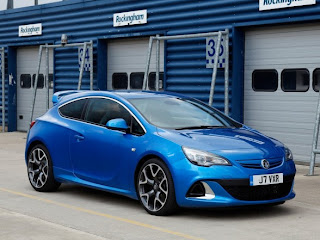Further changes for your chassis include brakes manufactured by competition supplier, Brembo, standard fitment of Vauxhall’s fully adaptive FlexRide damping system, uprated springs and new dampers developed between VXR and ZF Sachs.
Vauxhall’s new Astra VXR will incorporate deliver a category-leading 400Nm of torque, doing the work a 0-60mph time of 5.9 seconds and robust mid-range performance.
The VXR’s turbocharged, 2.0-litre direct-injection engine harks on the Insignia family, but while its aluminium block is comparable, the VXR incorporates an exceptional aluminium cylinder head and new turbocharger to liberate 280PS (up 40PS in the previous model) as well as over 200Nm per litre of torque – the top specific output to use class.
Making a high-torque engine to the Vauxhall Astra VXR was the important thing to unlocking the auto’s real-world, mid-range performance, in lieu of centering on power alone. Along with maximum torque produced using a broad plateau between 2450rpm and 5000rpm, VXR drivers won't want for immediate acceleration.
An exciting-new, state-of-the-art intake system originated to feed as often air into your turbocharger as it can be. The turbocharger itself has also been improved to adopt more charge-pressure, which builds from the moment 1400rpm for linear and strong acceleration. The absolute maximum charge pressure has grown to be 1.5 bar – 25 per cent more(a) from the Insignia 2.0T.
Vauxhall Astra VXR drivers may anticipate a soundtrack that's carefully engineered to draw enthusiasts, both from the inside and outside of the car. Drivers will get all the effect through the mid-to high rev range, particularly they alter from third to fourth under full throttle.
But outright performance hasn’t come with the expense of efficiency and sturdiness. Like every recent VXR models, the Astra was experiencing prolonged testing for the Nüburgring’s notorious Nordschleife for 10,000 kilometres under race conditions – the same to 110,000 road miles.
Even though Astra VXR can accelerate from 0-60mph inside a mere 5.9 seconds colliding with a maximum 155mph, standard Start/Stop technology has reduced fuel consumption by 14 percent (in comparison to the last model) on your combined 34.9mpg, and reduced emissions to 189g/km.









